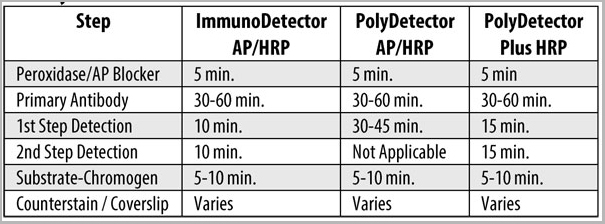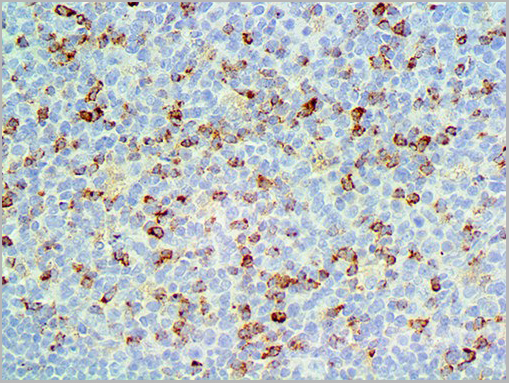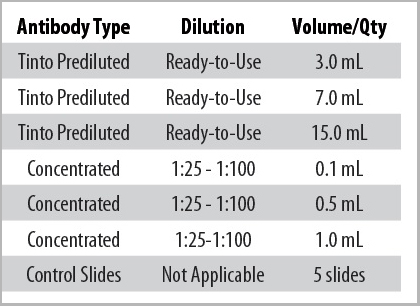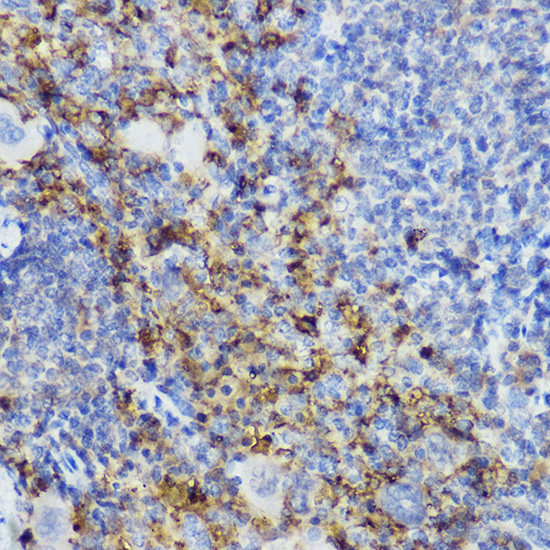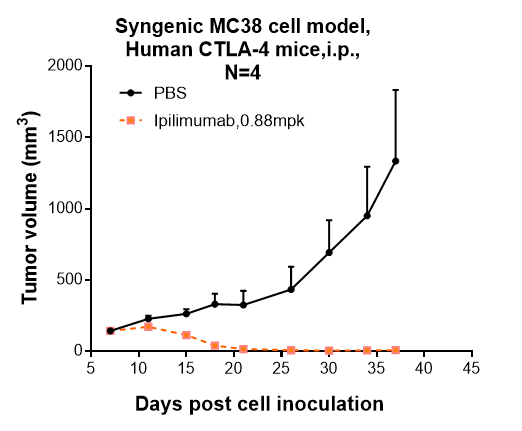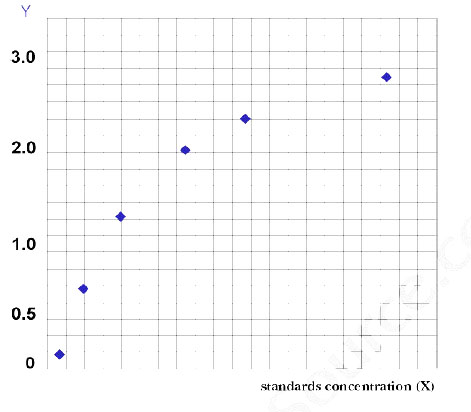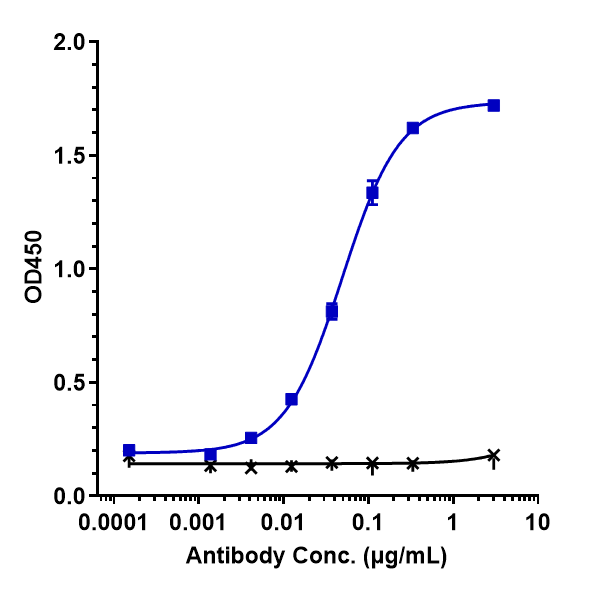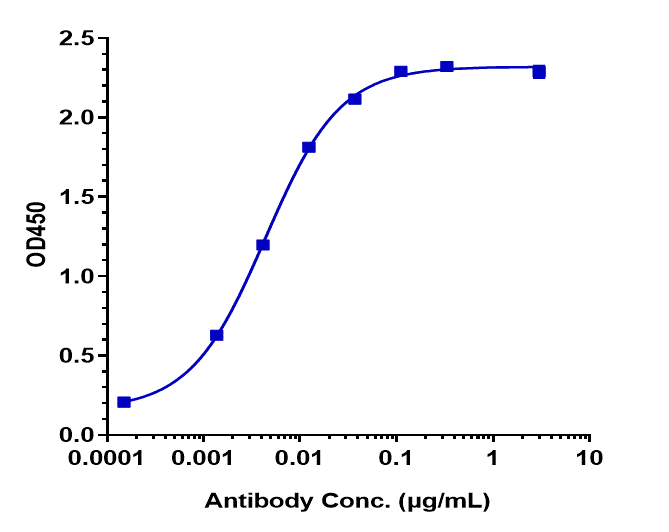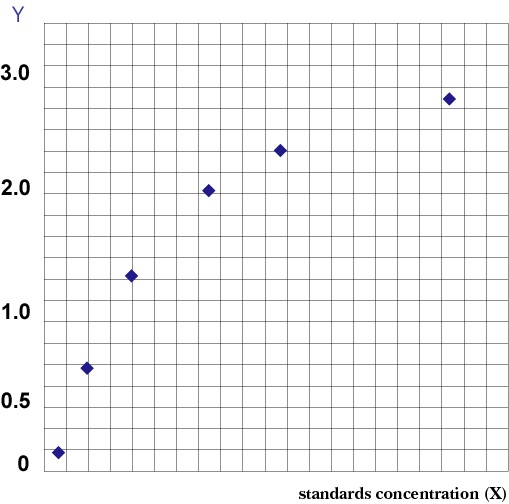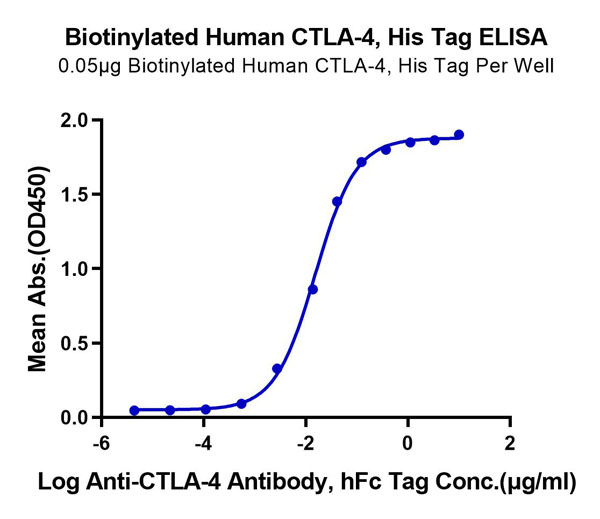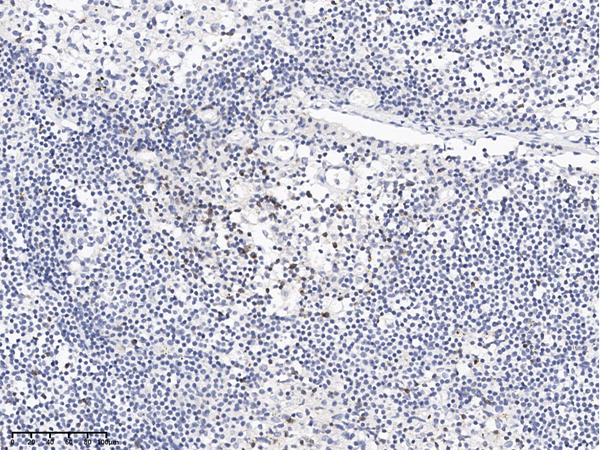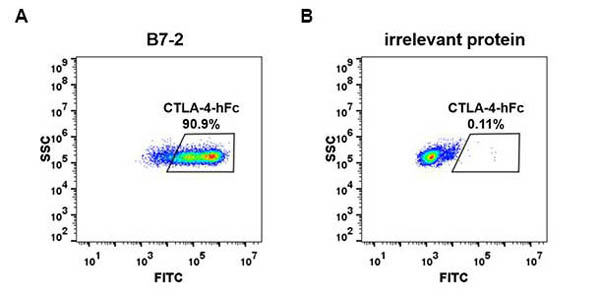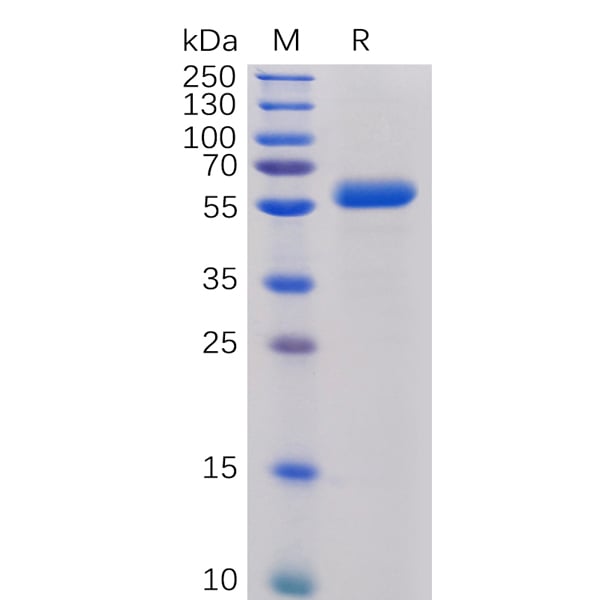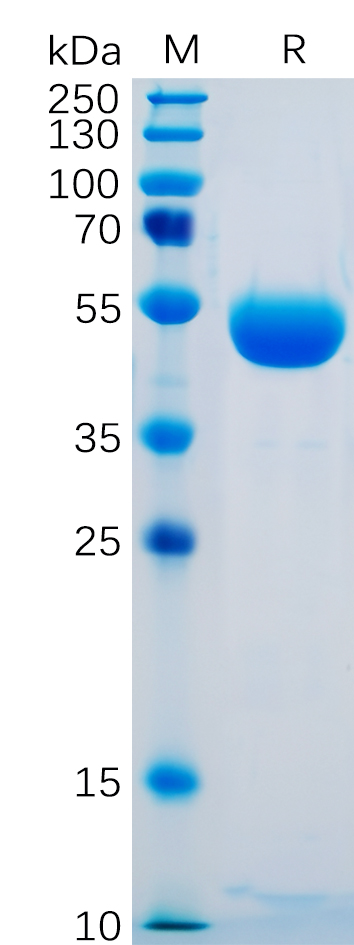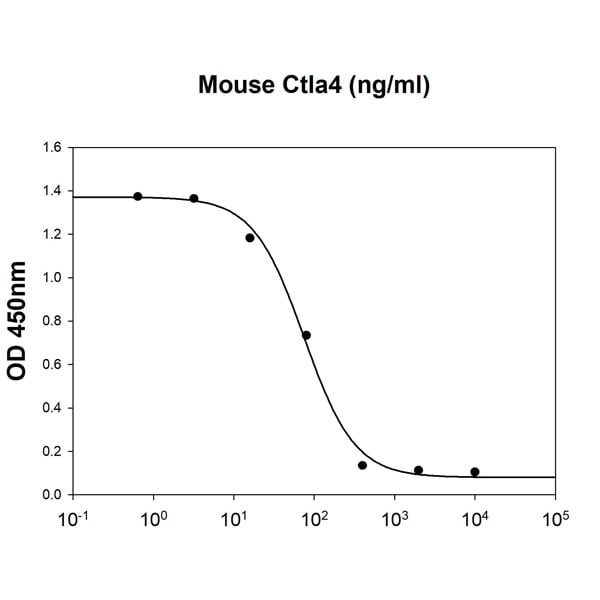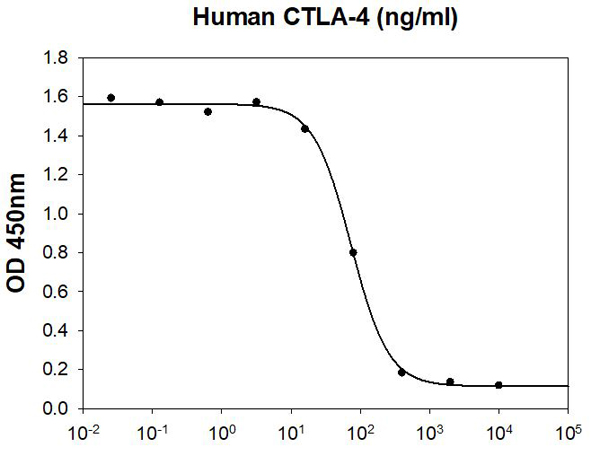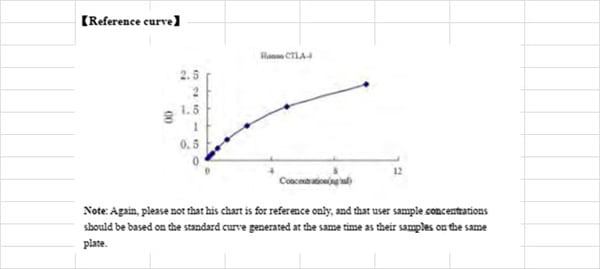Host
Mouse
Reactivity
Human
Clonality
Monoclonal
Isotype
IgG2a/K
Clone Number
BSB-88
Form/Format
CTLA-4 / CD152 is a mouse monoclonal antibody derived from cell culture supernatant that is concentrated, dialyzed, filter sterilized and diluted in buffer pH 7.5, containing BSA and sodium azide as a preservative.
Sequence Length
174
Application Notes
Specimen Preparation:
Paraffin sections: The antibody can be used on formalin-fixed paraffinembedded (FFPE) tissue sections. Ensure tissue undergoes appropriate fixation to ensure best results. Pre-treatment of tissues with heat-induced epitope retrieval (HIER) is recommended using ImmunoDNA Retriever with Citrate, ImmunoDNA Retriever with EDTA or ImmunoDNA Digestor. See reverse side for complete protocol. Tissue should remain hydrated via use of Immuno/DNA Washer solutions.
Frozen sections and cell preparations: The antibody can be used for labeling acetone-fixed frozen sections and acetone-fixed cell preparations.
Due to inherent variability present in immunohistochemical procedures (including fixation time of tissues, dilution factor of antibody, retrieval method utilized and incubation time), optimal performance should be established through the use of positive and negative controls.
Paraffin sections: The antibody can be used on formalin-fixed paraffinembedded (FFPE) tissue sections. Ensure tissue undergoes appropriate fixation to ensure best results. Pre-treatment of tissues with heat-induced epitope retrieval (HIER) is recommended using ImmunoDNA Retriever with Citrate, ImmunoDNA Retriever with EDTA or ImmunoDNA Digestor. See reverse side for complete protocol. Tissue should remain hydrated via use of Immuno/DNA Washer solutions.
Frozen sections and cell preparations: The antibody can be used for labeling acetone-fixed frozen sections and acetone-fixed cell preparations.
Due to inherent variability present in immunohistochemical procedures (including fixation time of tissues, dilution factor of antibody, retrieval method utilized and incubation time), optimal performance should be established through the use of positive and negative controls.
Reactivity
Parrafin, Frozen
Localization
Membranous
Control
Tonsil, Lymph Node, Colon, Thymus
Intended Use
For Analyte Specific Reagent. Analytical and performance characteristics for CTLA-4/CD152 antibody, clone BSB-88, are not established.
Immunogen
Synthetic peptide corresponding to residues of the C-terminus of the human CTLA-4 protein
Presentation
CTLA-4/CD152 is a mouse monoclonal antibody derived from cell culture supernatant that is concentrated, dialyzed, filter sterilized and diluted in buffer pH 7.5, containing BSA and sodium azide as a preservative.
Precautions
1. This product contains <0.1% sodium azide (NaN3) as a preservative. Ensure proper handling procedures are used with this reagent.
2. Always wear personal protective equipment such as laboratory coat, goggles and gloves when handling reagents.
3. Dispose of unused solution with copious amount of water.
4. Do not ingest reagent. If reagent is ingested, seek medical advice immediately.
5. Avoid contact with eyes. If contact occurs, flush with large quantities of water.
6. Follow safety precautions of the heating device used for epitope retrieval (TintoRetriever Pressure Cooker or similar).
7. For additional safety information refer to Safety Data Sheet for this product.
8. For complete recommendations for handling biological specimens, please refer to the CDC document, "Guidelines for Safe Work Practices in Human and Animal Laboratories" (see References in this document).
2. Always wear personal protective equipment such as laboratory coat, goggles and gloves when handling reagents.
3. Dispose of unused solution with copious amount of water.
4. Do not ingest reagent. If reagent is ingested, seek medical advice immediately.
5. Avoid contact with eyes. If contact occurs, flush with large quantities of water.
6. Follow safety precautions of the heating device used for epitope retrieval (TintoRetriever Pressure Cooker or similar).
7. For additional safety information refer to Safety Data Sheet for this product.
8. For complete recommendations for handling biological specimens, please refer to the CDC document, "Guidelines for Safe Work Practices in Human and Animal Laboratories" (see References in this document).
Mounting Protocols
For detailed instructions using biodegradable permanent mounting media such as XyGreen PermaMounter or organic solvent based resin such as PermaMounter, please inquire.
Preparation and Storage
Store at 2-8°C. Do not use after expiration date listed on package label. Temperature fluctuations should be avoided. Store appropriately when not in use, and avoid prolonged exposure to room temperature conditions.
Related Product Information for anti-CTLA-4/CD152 antibody
CTLA4 or CTLA-4 (cytotoxic T-lymphocyte-associated protein 4), classified as CD152, is a protein receptor known to functions as an immune checkpoint which downregulates the immune system. CTLA4 is found on the surface of T cells, and acts as an "off" switch when bound to CD80 or CD86 on the surface of antigen-presenting cells. The CTLA-4 protein is encoded by the Ctla4 gene in mice and the CTLA4gene in humans. CTLA4 is a member of the immunoglobulin superfamily that is expressed on the surface of Helper T cells and transmits an inhibitory signal to T cells. CTLA4 is similar to the T-cell co-stimulatory protein, CD28, and both molecules bind to CD80 and CD86, also called B7-1 and B7-2 respectively, on antigen-presenting cells. CTLA4 transmits an inhibitory signal to T cells, whereas CD28 transmits a stimulatory signal. Intracellular CTLA4 is also found in regulatory T cells and may be important to their function. T cell activation through the T cell receptor and CD28 leads to increased expression of CTLA-4, an inhibitory receptor for B7 molecules.
Mutations in this gene have been associated with insulin-dependent diabetes mellitus, Graves' disease, Hashimoto's thyroiditis, celiac disease, systemic lupus erythematosus, thyroid-associated orbitopathy, primary biliary cirrhosis and other autoimmune diseases. Polymorphisms of the CTLA-4 gene are associated with autoimmune diseases such as autoimmune thyroid disease and multiple sclerosis, though this association is often weak. In Systemic Lupus Erythematosus (SLE), the splice variant sCTLA-4 is found to be aberrantly produced and found in the serum of patients with active SLE. Germline haploinsufficiency of CTLA4 leads to CTLA4 deficiency or CHAI disease (CTLA4 haploinsufficiency with autoimmune infiltration), a rare genetic disorder of the immune system. This may cause a dysregulation of the immune system and may result in lymphoproliferation, autoimmunity, hypogammaglobulinemia, recurrent infections, and may slightly increase one's risk of lymphoma.
Mutations in this gene have been associated with insulin-dependent diabetes mellitus, Graves' disease, Hashimoto's thyroiditis, celiac disease, systemic lupus erythematosus, thyroid-associated orbitopathy, primary biliary cirrhosis and other autoimmune diseases. Polymorphisms of the CTLA-4 gene are associated with autoimmune diseases such as autoimmune thyroid disease and multiple sclerosis, though this association is often weak. In Systemic Lupus Erythematosus (SLE), the splice variant sCTLA-4 is found to be aberrantly produced and found in the serum of patients with active SLE. Germline haploinsufficiency of CTLA4 leads to CTLA4 deficiency or CHAI disease (CTLA4 haploinsufficiency with autoimmune infiltration), a rare genetic disorder of the immune system. This may cause a dysregulation of the immune system and may result in lymphoproliferation, autoimmunity, hypogammaglobulinemia, recurrent infections, and may slightly increase one's risk of lymphoma.
NCBI and Uniprot Product Information
NCBI GI #
NCBI GeneID
NCBI Accession #
NCBI GenBank Nucleotide #
NCBI Official Full Name
cytotoxic T-lymphocyte protein 4 isoform CTLA-4delTM
NCBI Official Synonym Full Names
cytotoxic T-lymphocyte associated protein 4
NCBI Official Symbol
CTLA4
NCBI Official Synonym Symbols
CD; GSE; GRD4; ALPS5; CD152; CTLA-4; IDDM12; CELIAC3
NCBI Protein Information
cytotoxic T-lymphocyte protein 4
UniProt Protein Name
Cytotoxic T-lymphocyte protein 4
UniProt Gene Name
CTLA4
UniProt Synonym Gene Names
CD152; CTLA-4
UniProt Entry Name
CTLA4_HUMAN
Similar Products
Product Notes
The CTLA-4/CD152 ctla4 (Catalog #AAA13570) is an Antibody produced from Mouse and is intended for research purposes only. The product is available for immediate purchase. The CTLA-4/CD152 reacts with Human and may cross-react with other species as described in the data sheet. Specimen Preparation: Paraffin sections: The antibody can be used on formalin-fixed paraffinembedded (FFPE) tissue sections. Ensure tissue undergoes appropriate fixation to ensure best results. Pre-treatment of tissues with heat-induced epitope retrieval (HIER) is recommended using ImmunoDNA Retriever with Citrate, ImmunoDNA Retriever with EDTA or ImmunoDNA Digestor. See reverse side for complete protocol. Tissue should remain hydrated via use of Immuno/DNA Washer solutions. Frozen sections and cell preparations: The antibody can be used for labeling acetone-fixed frozen sections and acetone-fixed cell preparations. Due to inherent variability present in immunohistochemical procedures (including fixation time of tissues, dilution factor of antibody, retrieval method utilized and incubation time), optimal performance should be established through the use of positive and negative controls. Researchers should empirically determine the suitability of the CTLA-4/CD152 ctla4 for an application not listed in the data sheet. Researchers commonly develop new applications and it is an integral, important part of the investigative research process. It is sometimes possible for the material contained within the vial of "CTLA-4/CD152, Monoclonal Antibody" to become dispersed throughout the inside of the vial, particularly around the seal of said vial, during shipment and storage. We always suggest centrifuging these vials to consolidate all of the liquid away from the lid and to the bottom of the vial prior to opening. Please be advised that certain products may require dry ice for shipping and that, if this is the case, an additional dry ice fee may also be required.Precautions
All products in the AAA Biotech catalog are strictly for research-use only, and are absolutely not suitable for use in any sort of medical, therapeutic, prophylactic, in-vivo, or diagnostic capacity. By purchasing a product from AAA Biotech, you are explicitly certifying that said products will be properly tested and used in line with industry standard. AAA Biotech and its authorized distribution partners reserve the right to refuse to fulfill any order if we have any indication that a purchaser may be intending to use a product outside of our accepted criteria.Disclaimer
Though we do strive to guarantee the information represented in this datasheet, AAA Biotech cannot be held responsible for any oversights or imprecisions. AAA Biotech reserves the right to adjust any aspect of this datasheet at any time and without notice. It is the responsibility of the customer to inform AAA Biotech of any product performance issues observed or experienced within 30 days of receipt of said product. To see additional details on this or any of our other policies, please see our Terms & Conditions page.Item has been added to Shopping Cart
If you are ready to order, navigate to Shopping Cart and get ready to checkout.

